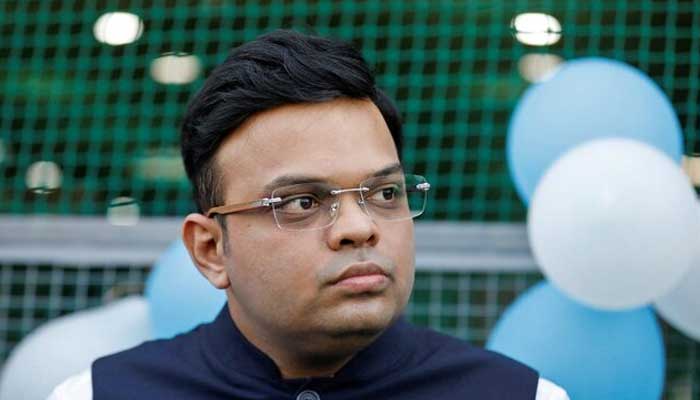

WASHINTON - The American Khalistani separatist leader targeted in a foiled assassination plot planned by India said that intelligence agents in New Delhi still want him dead and said that the Biden administration’s “quiet diplomacy” has failed to deter Prime Minister Narendra Modi’s government from engaging in transnational repression of Sikhs. “The risk has increased,” Gurpatwant Singh Pannun said in an interview to Bloomberg at his office in New York. “The Modi regime has not faced any consequences. They have not been held accountable. Why would they stop?” The founder of pro-Khalistan Sikhs for Justice — which advocates for a Sikh nation known as Khalistan to be carved out of India’s Punjab state — said resolved to continue his work for “independence of Punjab from the Indian occupation”. He spoke to Bloomberg ahead of Khalistan Referendum voting in Auckland New Zealand on 17 November. The New York based attorney said: “India’s attempts to kill me will not stop me from continuing Khalistan Referendum voting till either India will kill me or I will see the independence.”
Bloomberg said that Pannun’s murder plot case first disrupted US-India ties late last year when the US Justice Department unsealed a superseding indictment in the Southern District of New York alleging that Nikhil Gupta, an Indian national working for Indian intelligence RAW, was recruited by an Indian government employee working for RAW — known as “CC-1” — to have Pannun killed as part of a broader plan to assassinate overseas activists. At the time, Pannun’s group was organizing unofficial Khalistan referendums among Indian diaspora communities. Months earlier in Canada, a Sikh separatist called Hardeep Singh Nijjar — a long-time associate of Pannun’s — was killed in a shooting that Canadian Prime Minister Justin Trudeau blamed on India. But the US assassination plot on Pannun was foiled, according to the indictment, when an Indian national, operating under the Indian agent’s direction, inadvertently hired an undercover US agent posing as a potential hit-man. Bloomberg said the case has been embarrassing for the Biden administration, which has continued to court Modi in an effort to counterbalance China. “The question that this episode raises is whether we really are on the same page with this Indian government, and the extent to which an inclination to want to achieve a broader strategic end is maybe leading us to overlook the actually very transactional nature of the relationship,” said Daniel Markey, a former State Department official who’s now at the US Institute of Peace. Pannun, who worked at a Wall Street bank before turning to human rights law, now has five security guards to protect him and search the bags of even his close friends and associates, the publication said.
“I can continue to fight for the liberation of Punjab only if I stay alive,” he said.
“You are doing a peaceful and democratic referendum, you are sitting at a place — and India has the resources and the proxies and the weapons and the money to kill you. You have to make sure that you survive and you continue the campaign.” In a recent twist, Pannun filed a civil case in the US seeking restitution against senior Indian officials he alleges are responsible for the assassination attempt. Those allegations are “unsubstantiated” and “unwarranted,” Misri, the foreign secretary, said. In Canada, which saw India expel dozens of diplomats after Trudeau accused India, the government is holding firm on its accusation that India was behind the killing of Nijjar. “That’s the ultimate breach of our country’s sovereignty,” Foreign Minister Melanie Joly told Bloomberg in an interview on Sept. 30. “That can’t happen again.”
Pannun, who was born in Amritsar, India, came to the US as a student. He made the new allegations that his life was still at risk after Sikh separatists in California had their truck “sprayed with bullets,” his group said.
The publication said that new attack is reviving concerns among US lawmakers after the original assassination plot prompted some Democratic senators to call on Secretary of State Antony Blinken to mount a strong diplomatic response “no matter the perpetrator.”
Senator Jeff Merkley, an Oregon Democrat, said it was crucial to investigate the California incident and to “send a strong message deterring potential future efforts to undermine the values of free speech and protest that we as a nation hold dear.”
Senior Biden administration officials, including White House National Security Advisor Jake Sullivan, have raised Pannun’s case with Modi’s government. Sullivan said in July that the issue “is sensitive, it is something we are working through,” but that the US effort “has been effective, in my view, mostly because it is taking place behind closed doors.”
Pannun, however, says that “quiet diplomacy” hasn’t worked “in the last 15 months” and that “it will not work in the next three years.” He also the Biden administration was handling his case differently because of its desire to have a strategic relationship with New Delhi.
“Had it been Iran, had it been China, had it been Russia — would the administration’s response be the same?” he asked.











